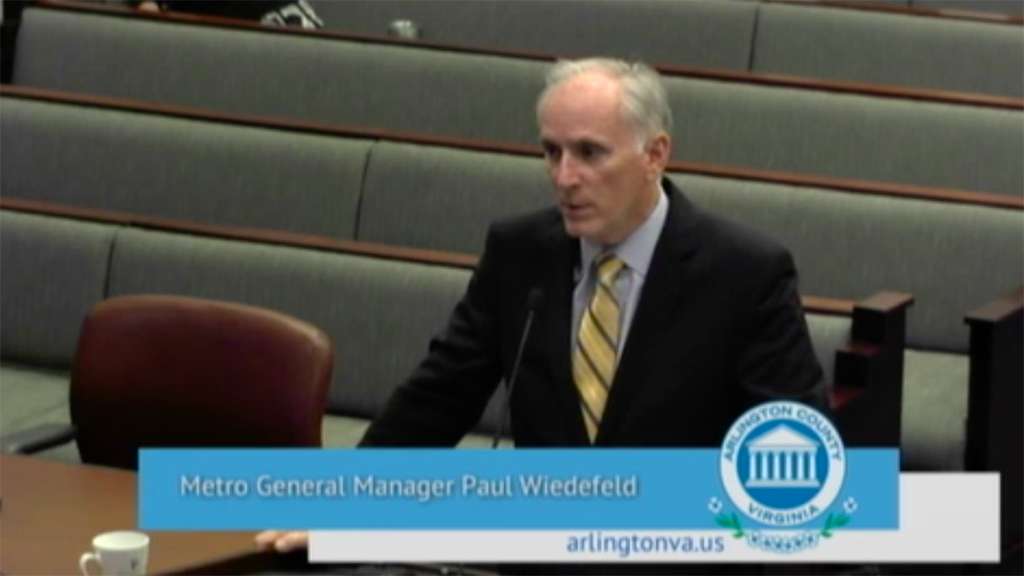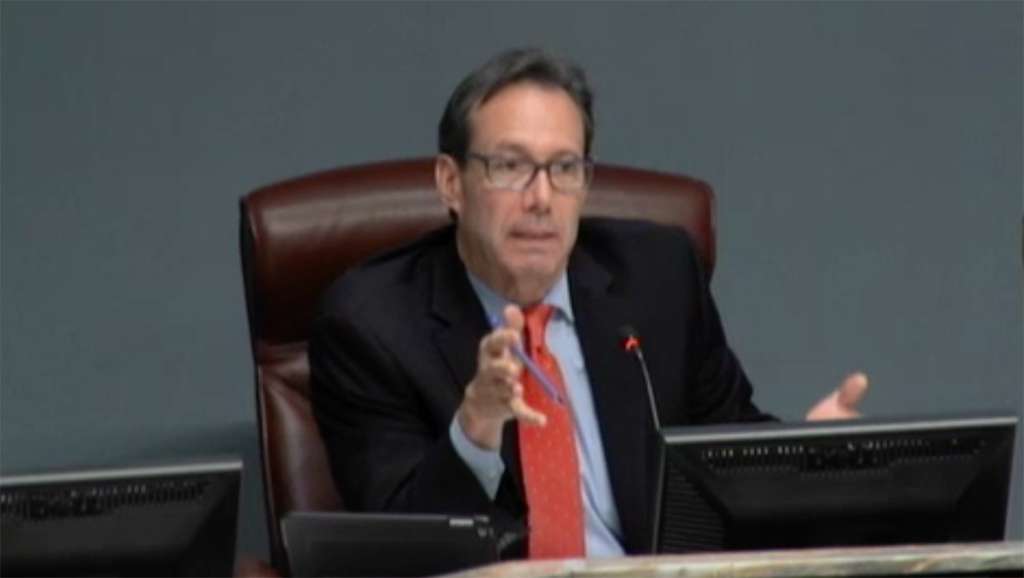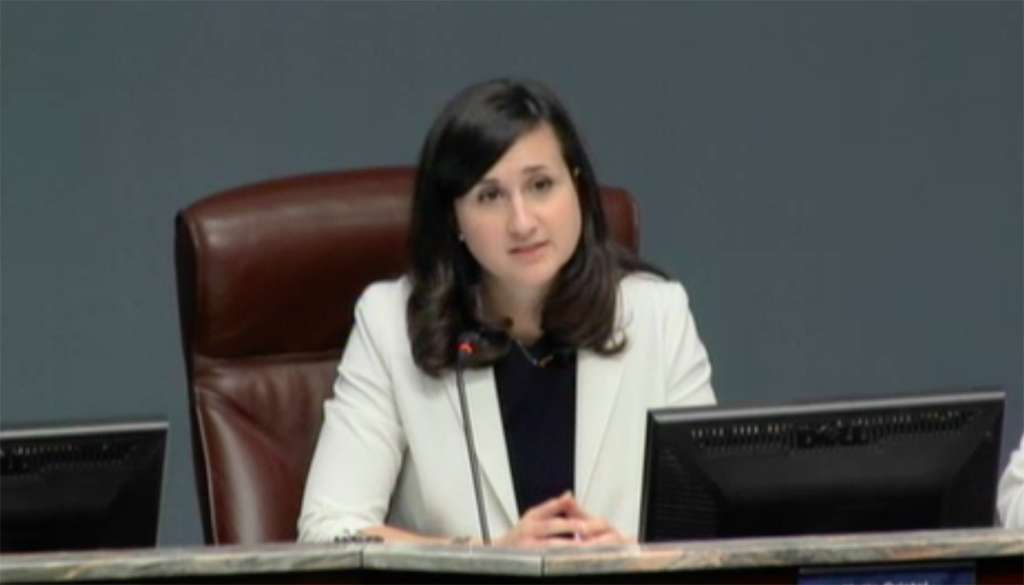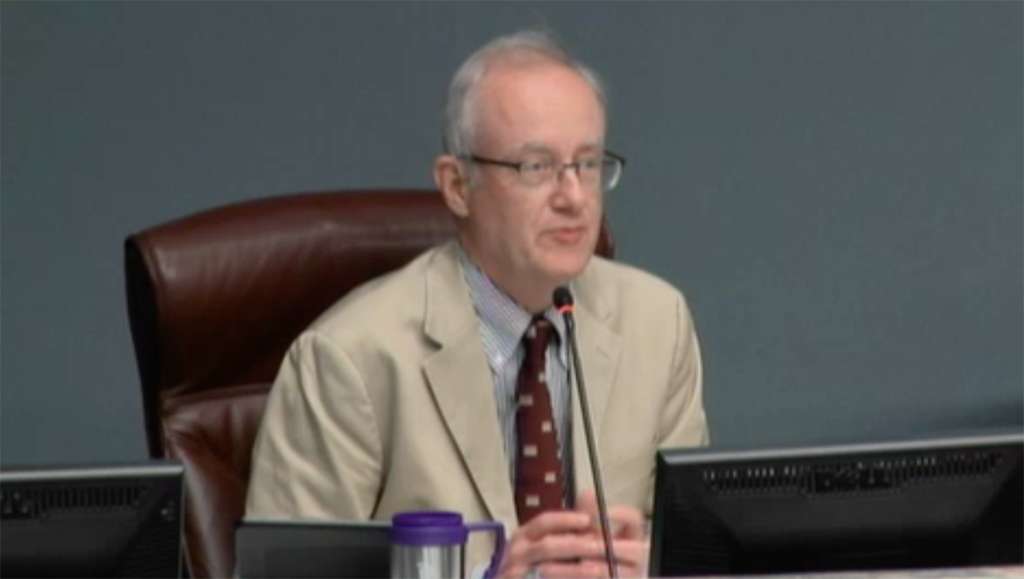Arlington County will not be asked to pay for more from its local coffers to cover dramatic funding hikes for Metro, the agency’s general manager promised Tuesday night.
Metro General Manager Paul Wiedefeld said he hoped to cap any requests for increased contributions from the various jurisdictions that make up the transit authority at 3 percent per year.
More money for Metro was a factor in the Arlington County Board’s decision to hike property taxes by 1.5 cents, meaning residents can expect to pay an extra $277 on average. Arlington will contribute $70.7 million for FY 2018, compared to $56.6 million in FY 2017.
And while Wiedefeld’s pledge does not rule out Arlington’s contribution rising, it would be a lower increase than the 23.85 percent hike taxpayers funded for Metro’s fiscal 2018 budget.
Wiedefeld, during his presentation to the County Board, said smart fiscal management would avoid asking jurisdictions for more money, as would a new dedicated revenue source. The Metropolitan Washington Council of Governments adopted a resolution earlier this month calling for a dedicated funding source, but it would need buy-in from Maryland and Virginia’s state assemblies as well as D.C.’s government.
County Board Chair Jay Fisette said the FY 2018 contribution was a “big number for a locality like Arlington,” and said he welcomed a cap on funding.
Board Vice Chair Katie Cristol said she was “delighted to see [the promised funding cap] having just gone through a pretty difficult budget process and like many other jurisdictions are struggling with the idea of trying to do that again.”
Wiedefeld also promised that local riders of the Blue and Yellow lines would see more frequent trains as Metro looks to adjust its rail service, starting June 25. He said that the plan is for the Blue Line to arrive on platforms every eight minutes during rush hour, instead of every 12 minutes, as is current practice to accommodate the Silver Line.
Board member John Vihstadt pointed out that riders of the Blue and Yellow Lines in Arlington might have “a little different perspective” on Metro’s reliability from those who use the Orange and Silver Lines in the county.
Wiedefeld said that Metro would look to further increase frequency and emphasize reliability as it ends its SafeTrack program and moves into its new Back2Good initiative.
“I think we have to roll this out in June, let’s start to rebuild the base around that, deliver that and be much more consistent in that service, and then as we start to get better and better we can look at ways we can expand that,” Wiedefeld said. “But we have to start with looking at the realities of where we are.”
On ARLnow’s 26 Square Miles podcast last week, County Board and Metro board member Christian Dorsey said that while Metro still has work to do to increase reliability, delays have decreased as SafeTrack has wrapped up.





